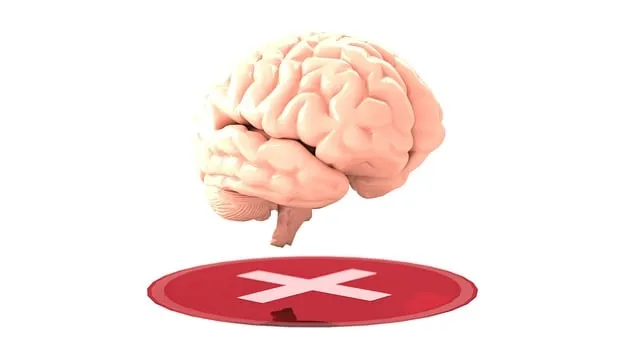Kaiser Permanente behavioral health services Colorado Springs focuses on building resilience through its RFM framework (Resistance, Flexibility, Mastery), offering personalized treatment plans integrating crisis intervention and emotional intelligence. They empower individuals to develop emotional intelligence, refine coping strategies, and build lasting resilience. Their Community Outreach Program Implementation initiatives extend these principles into the community, fostering support networks that promote mental well-being for all. Through evidence-based practices, comprehensive solutions, individual therapy, group support, and specialized programs, they help clients navigate life's challenges with enhanced coping mechanisms, self-esteem, and stress management.
“Uncover the power of Resilience, Flexibility, and Mobility (RFM) in enhancing mental wellness with our comprehensive guide. This article explores how RFM, showcased through Kaiser Permanente Behavioral Health Services Colorado Springs’ innovative programs, can transform lives. We delve into specific resilience-building exercises, their benefits, and practical steps to integrate these techniques into mental wellness programs. Discover how RFM becomes a game-changer in behavioral health, offering a unique approach to fostering strength and adaptability.”
- Understanding RFM and Its Role in Behavioral Health
- Kaiser Permanente Behavioral Health Services Colorado Springs: An Overview
- Resilience Building Exercises: Techniques and Benefits
- Integrating RFM into Mental Wellness Programs: A Step-by-Step Guide
Understanding RFM and Its Role in Behavioral Health

At Kaiser Permanente behavioral health services Colorado Springs, we recognize that building resilience is a cornerstone of overall well-being. Resilience, the ability to adapt and bounce back from adversity, plays a crucial role in mental health and wellness. That’s where RFM – a powerful framework for understanding individual strengths, vulnerabilities, and coping mechanisms – comes into focus. RFM stands for Resistance, Flexibility, and Mastery, three dimensions that offer valuable insights into how individuals navigate life’s challenges.
By integrating concepts from Crisis Intervention Guidance and Emotional Intelligence, our dedicated team employs RFM as a guide to personalize treatment plans. We believe in empowering individuals with the tools they need to cultivate emotional intelligence, enhance coping strategies, and build lasting resilience. Furthermore, our Community Outreach Program Implementation initiatives extend these principles into the broader community, fostering support networks that promote mental well-being for all.
Kaiser Permanente Behavioral Health Services Colorado Springs: An Overview

Kaiser Permanente Behavioral Health Services Colorado Springs is a leading provider of mental health and wellness solutions, dedicated to transforming lives through comprehensive care. This facility offers a wide range of services tailored to address various aspects of emotional well-being, from stress management and mood disorders to substance use treatment and self-care practices.
The team at Kaiser Permanente Behavioral Health Services Colorado Springs comprises highly skilled professionals who utilize evidence-based approaches and innovative techniques to support individuals in developing resilience and coping strategies. Through individual therapy, group support sessions, and specialized programs, they empower clients to manage their emotional regulation and improve overall mood while fostering healthy self-care practices.
Resilience Building Exercises: Techniques and Benefits

Resilience building exercises are designed to help individuals navigate life’s challenges with greater ease and flexibility. These techniques, often utilized by Kaiser Permanente behavioral health services Colorado Springs, focus on cultivating mental strength and emotional agility. Through a combination of mindfulness practices, cognitive reframing, and skill-building strategies, these exercises empower folks to overcome adversity and thrive despite hardships.
The benefits of resilience training are far-reaching. Similar to what’s explored in Mental Health Policy Analysis and Advocacy and supported by Trauma Support Services, regular practice can lead to improved coping mechanisms, enhanced self-esteem, and better stress management. By fostering a sense of control and encouraging positive thinking, these exercises help individuals build confidence boosting strategies that promote overall well-being.
Integrating RFM into Mental Wellness Programs: A Step-by-Step Guide

Integrating RFM (Resilience, Flexibility, and Mastery) into mental wellness programs can significantly enhance their effectiveness, particularly for organizations like Kaiser Permanente behavioral health services Colorado Springs looking to address a wide range of mental health concerns. Here’s a step-by-step guide to help you incorporate these strategies:
1. Assess Needs: Begin by evaluating the specific needs of your target population. Consider factors such as age, cultural backgrounds, and prevalent mental illness stigma reduction efforts or stress reduction methods they face. Tailor your RFM exercises accordingly to ensure relevance and engagement.
2. Educate on Resilience: Introduce the concept of resilience, teaching participants that it’s not about avoiding challenges but adapting to them effectively. Kaiser Permanente behavioral health services Colorado Springs can leverage their expertise in mental wellness to foster a culture where individuals view setbacks as opportunities for growth.
3. Promote Flexibility Mindset: Encourage a flexible mindset by highlighting the benefits of embracing change and uncertainty. This step is crucial in helping individuals navigate life’s curveballs without becoming overwhelmed. Incorporate exercises that challenge fixed mindsets and foster a growth mindset.
4. Build Mastery Skills: Empower participants to develop a sense of control and competence through mastery skills training. Provide practical tools like problem-solving, goal setting, and coping strategies tailored to individual needs. Stress reduction methods can be woven into these activities to support mental wellness.
5. Create a Supportive Environment: Foster an environment that encourages open dialogue about mental illness without judgment. This step is vital in reducing the mental illness stigma and creating a safe space for participants to practice new skills. Incorporate group discussions, peer support, or social activities to build connections and strengthen the sense of community.
6. Monitor Progress: Regularly assess the impact of RFM exercises on participants’ mental wellness. Collect feedback and adjust the program as needed to ensure continuous improvement. This step ensures that the interventions remain relevant and effective for those engaging in Kaiser Permanente behavioral health services Colorado Springs.
Resilience is a powerful tool for navigating life’s challenges, and integrating RFM into mental wellness programs, as demonstrated by Kaiser Permanente Behavioral Health Services in Colorado Springs, can significantly enhance individuals’ coping mechanisms. The resilience-building exercises outlined in this article provide actionable strategies to strengthen emotional well-being. By adopting these techniques, individuals can improve their ability to bounce back from setbacks, fostering a more positive and resilient mindset. This approach not only benefits personal growth but also contributes to the overall success of behavioral health initiatives, making it a valuable asset in the field of mental wellness.






